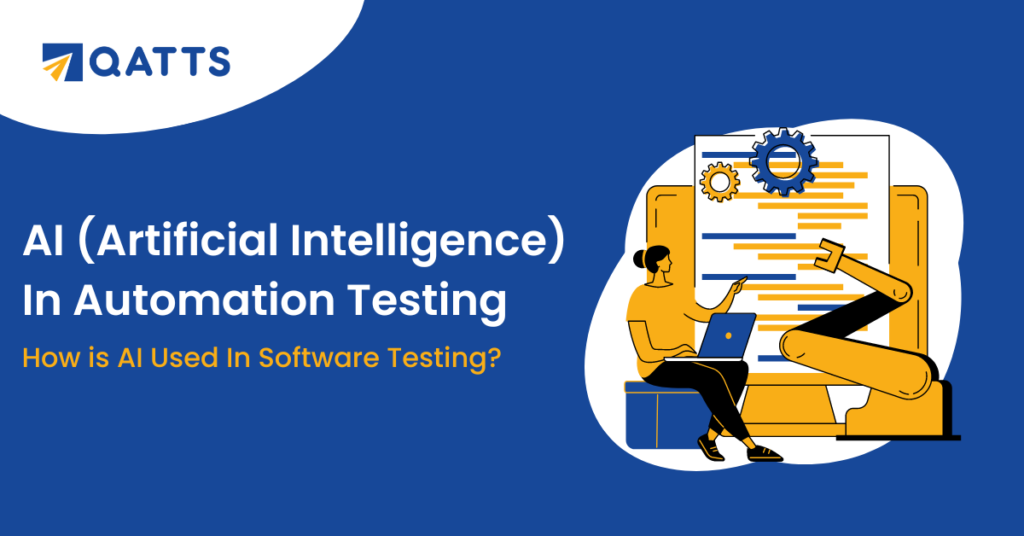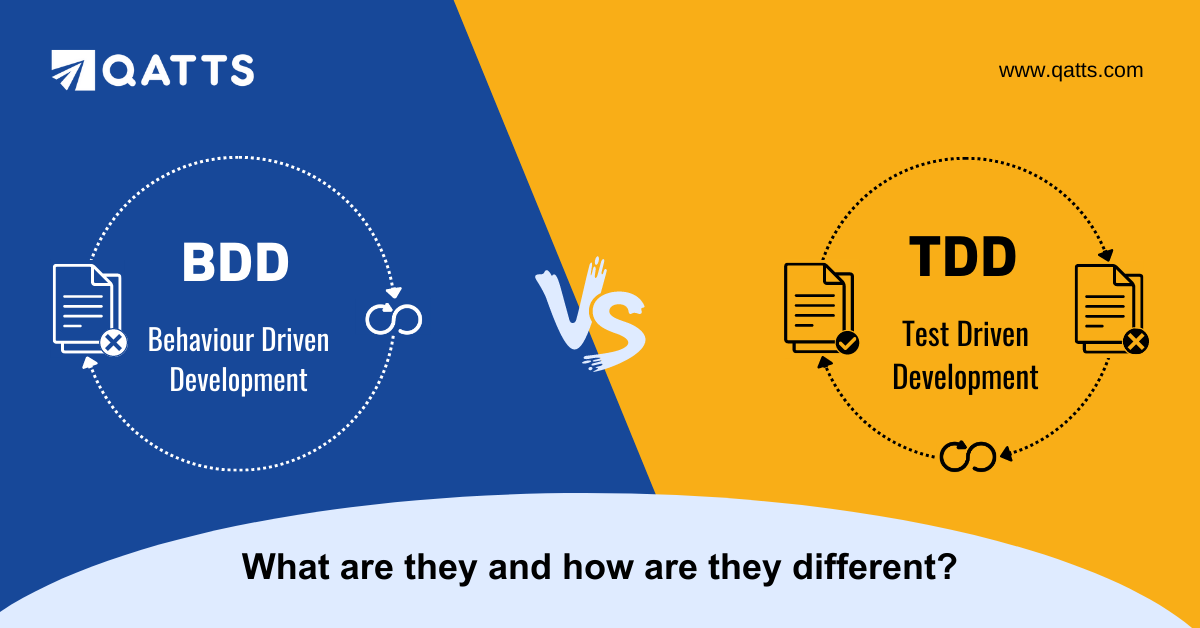
Artificial intelligence is the future of the world, and the way forward. This has already been proven true, and with every passing day, AI is becoming more prominent and being used in every field there is. As such, AI is now being used in testing as well, with AI testing having turned out to be a much more effective way of ensuring customer satisfaction.
By using AI in testing, one can ensure that the specific conditions required to be fulfilled by an application are fulfilled, by means of letting the test performers know and understand the risks that are involved in the software implementation. In this blog, we shall look at AI’s scope in testing.
What Is Automation Testing?
Automation testing is the process of cross- or double-checking whether the software being worked on is the way it is supposed to be, in terms of its functionality and operations. Through this process, any bugs or errors in the application can also be found out and fixed immediately, which eliminates any future confusion.
Automation testing uses scripted sequences to examine the software and can be run at any time of the day. After that, it reports what has been found, and this information can be compared with earlier test runs
What is Artificial Intelligence (AI)?
Artificial intelligence AI) is a simulation of human intelligence, by machines. Computer systems are usually involved in this process, which are designed to replicate or simulate human intelligence, so that it may be used to run or create several other programs. Some of applications in which AI is used include expert systems, natural language processing, speech recognition and machine vision.
AI continues to develop at a rapid pace, taking over many other areas and fields, and is expected to grow at a much faster pace in the coming years.
What Is the Role of AI In Software Testing?
When compared to the extent to which AI is used in areas like self-driving systems or voice-assisted control, machine translation, and robotics, the use of AI in software is still very much involved and is currently only in its inception stage.
AI is used to make the software development life cycle easier and can be used to help automate and reduce the amount of repetitive or tedious tasks that are involved in development and testing.
AI in software testing is being aimed to reduce the involvement of software developers or testers in the most mundane of tasks, and thereby increasing their value by enabling them to be involved purely in the development of the application.
Even though the use of AI is only increasing by the day, in software testing, it does not diminish the use or need for human intelligence in applying business logic, strategic thinking, creative ideas, etc.
What are the Advantages of AI in Automation Testing?
At the point that AI is currently in, in automation testing, it offers a lot of advantages, which are only expected to increase in number, with the advancement of the use of AI in automation testing. Here are some advantages:
1. Greater test coverage
The overall quality of the software application is improved through AI testing, which expands the complexity and scope of the tests. AI testing achieves this by going deep into the memory, file data, internal program statistics, and data tables.
2. Better accuracy and quality
It is very possible and natural for a human to make mistakes, but a machine’s possibility of errors is diminished when a machine is capturing, recording, and analyzing data. This improves the efficiency of the process and the final product’s quality.
3. Instant feedback
Any bugs can be instantly fixed when AI is involved in testing, as it instantly finds out any errors or bugs, as it is an automatic process.
4. Time and money optimization
Given that AI can also process huge amounts of data at a time, the time taken to complete a process is cut down, thus saving a lot of time. This also ends up saving a lot of money on resources as well, as the work comes to an end in a much shorter period of time.
5. Improved error detection
As any software continues to be developed, the volume of the data also keeps expanding, which can make it difficult for errors and bugs to be detected manually. Since AI is an automatic process, it detects faults on its own, and reports immediately, which reduces the chances of complications as the application continues to develop.
6. Improved test cases
Through the conventional approach, it is often not easy for developers to examine more test case scenarios. For AI, it is very easy to provide better real-world test cases, which are easy and quick to govern.
What are the various methods for AI-Based Software Test Automation?
The various methods for AI-Based Software Test Automation are as follows:
1. Regression Suite Automation
A tester needs a lot of time for regressions testing, which is reduced with AI, which tests every time there is a change in the code, which is done by finding and running the proper collection of test cases.
2. Defect Analysis and Prediction
The delivery time of the software application is made faster through defect analysis, which assures early fault detection, which also enables the developers and testers to fix the defects at an earlier stage itself.
3. Self-healing Automation
AI enables self-healing process in the development of a software, whenever there may be any script breakages due to any changes in the script.
How to Use AI in Automation Testing?
AI needs to be smartly implemented in QA practices, for it to really help the overall process and bring value to your release cycle. Here are a few ways in which AI can be used in Automation testing:
1. Run Visual, Automated UI Tests
Contrary to typical test automation, automated visual validation tools can be used in AI testing to execute image-based tests. Instead of depending on human testing, you can utilise artificial intelligence to make sure that the user interface (UI) of your application is right. Each UI component can be evaluated by AI, including colors, forms, sizes, and positions. Also, with visual validation tools, AI may detect anomalies that human testers often miss.
2. Run More Meaningful Automated Tests:
Your test suite may need to run due to minor, undetectable modifications to your codebase. AI tools may evaluate your changed code and suggest the number of test cases to execute, which is not the case with conventional tools. AI may evaluate your present test coverage, highlighting application areas that need not be handled and flagging parts that are.
3. Test Your APIs:
Due to the quantity of activity that takes place behind the proverbial curtain, evaluating a product’s back end receives a lot of attention. AI may analyze the statistics behind your API calls during API testing to evaluate product behaviors and identify problems with third-party integrations in real-time.
4. Spidering AI:
Writing tests automatically is one of artificial intelligence’s strongest points. AI accomplishes this by “spidering,” or crawling through your program to measure load speeds and gather feature information using screenshots and HTML downloads. AI recognizes any variations from expected product patterns from one development cycle to the next. QA testers can then verify the discovered differences and plan the further actions.
5. Create Automated Tests That are Reliable:
Test cases can fail for as little as altering the name of a field. You may teach your AI testing software to grasp your software system and the connections between the components of the document object model. AI can choose which locators should be used as testing pieces by understanding how your application may change over time.
5 Popular AI-Powered Test Automation Tools
It is always important to identify the right AI testing tool to get the best output. Here are some of the most popular AI powered test automation tools:
1. TestCraft
This platform for AI test automation is excellent for both continuous and regression testing. Even without coding experience, testers can visually design automated Selenium-based test cases by using a drag-and-drop interface when working on top of Selenium. Teams may do testing simultaneously across many browsers and working settings thanks to TestCraft.
2. Applitools:
Applitools excel in managing visual aspects of applications as a visual UI testing and monitoring tool. This testing platform, which is powered by Visual AI, may be used by testers of all levels to evaluate the visual components of your UI. It scans every screen in your app using an adaptable methodology, then examines any apparent inconsistencies.
3. Functionize:
Performance, load, and functional testing may all be automated with the help of this AI testing tool. By running thousands of test cases quickly across all devices and browsers, Functionize accelerates test design, troubleshooting, and maintenance. Based on requests made in plain English, this platform may also generate functional test cases.
4. Sauce Labs:
Sauce Labs, a cloud-based test automation platform, uses AI to carry out automated testing across a diverse range of browsers, operating systems, and mobile emulators. The largest continuous testing tool in the market, according to this testing tool, makes it the best choice for evaluating application performance across all web-based platforms.
5. Testim:
This automated function test tool makes use of AI to speed up the creation, execution, and maintenance of automated tests. The browsers and operating systems Chrome, Edge, Firefox, Safari, IE, and Android all support Testim.
Frequently Asked Questions (FAQs)
1. What Is the Future Scope of Automation Testing?
The future scope of automation tools is highly promising and bright due to the usage of modern tools. Businesses would still want specialists to understand how to utilise these tools and interpret the output even if these automation technologies will execute the test cases and offer the findings.
2. What is AI-based automation?
AI-based testing is a type of software testing, which uses AI and Machine Learning (ML) algorithms to effectively test a software product.
3. What is the impact of AI on automation?
A significant amount of organised and unstructured data will be organised, tested, and analyzed with AI’s assistance in order to identify software flaws. Additionally, it can anticipate probable bugs in the future and provide support in advance to manage the testing process.
Conclusion
With the progressions and development of technology, AI will also develop into a much larger force than it already is today. As such, the use of AI in automation testing is also only expected to increase with time, which is only expected to improve the overall process of automation testing and give better results and output on the whole.


